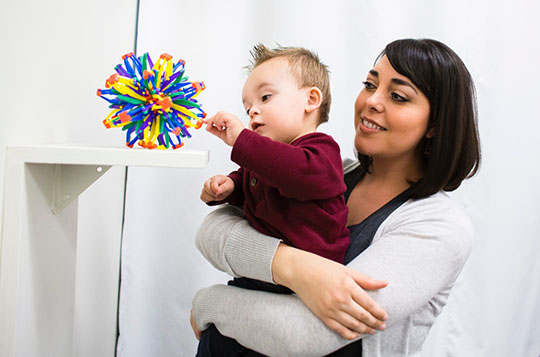 Developmental Faculty
Developmental Faculty
Mayra Bámaca-Colbert - Lab website
Heather Bortfeld - Lab website
Jeffrey Gilger
Elif Isbell - Lab website
Alexandra Main - Lab website
Rose Scott - Lab website
Eric Walle - Lab website
Developmental Program
Developmental Psychology is the study of how and why psychological processes and behavior change across the lifespan. The field can be a unifying source of multidisciplinary questions and collaborations involving experimental, social, community and health psychology, as well as quantitative methods, cognitive science, and neuroscience. The findings from developmental research can often be readily applied to issues in fields of education, family life, and human health and treatment. Developmental psychology thus aligns with the interdisciplinary emphasis and translational and engagement efforts of the department and university.
The Developmental Program at UC Merced has a thematic focus on diverse children and families, especially the underserved populations in our local region. Our current faculty have diverse interests and expertise in cognitive development, social development, emotional development, neuroscience, and genetics. While some faculty members focus on issues pertinent to typically developing children, others investigate atypical development (e.g., learning disabilities, developmental disorders, and giftedness). Specific areas of emphasis include:
- Language development in hearing children and children with cochlear implants (Bortfeld, Scott, Walle)
- How parent-child interactions are affected by culture and context (Bámaca, Main, Scott)
- Brain development in typically-developing children and children with learning disabilities (Bortfeld, Isbell)
- Social, emotional, and cognitive development in infancy and early childhood (Bortfeld, Isbell, Scott, Walle)
- Ethnic-racial minoritized youths' psychological and behavioral adjustment within family, school, and neighborhood contexts (Bámaca, Main)
Curriculum
In addition to the core coursework, students interested in developmental psychology are required to take PSY 230 Developmental Psychology (4 units). It is highly recommended that this course is completed by the end of the student’s second year unless it is not offered during that time frame.
Developmental elective courses are divided into Group 1 (Cognitive/Neuroscience) and Group 2 (Social/Emotional). Students take three elective courses from the developmental course offerings listed below, with at least one course from each group:
|
Group 1 Developmental courses (Cognitive/Neuroscience) |
Group 2 Developmental courses (Social/Emotional) |
|
PSY 235: Language Acquisition |
PSY 232: Development in the Family Context |
|
PSY 236: Cognitive Development |
PSY 290: Adolescence |
|
PSY 238: The Development of Social Mind |
PSY 290: Emotion |
|
PSY 284: Developmental Cognitive Neuroscience |
PSY 290: Immigrant Youth & Families |
|
PSY 290: The Development of Executive Functions |
|
Exceptions and substitutions of transfer courses may be made with approval by the student's advisor and the developmental faculty. These courses should be an explicit part of the student’s coursework plan based on the department’s projected offerings/course schedule.
Elective courses outside developmental area: In consultation with their advisors, students are expected to broaden their backgrounds by taking three additional courses, two of which need to be outside the Developmental area. Electives may also be used to provide a more in-depth study of a particular area. All electives need to be content courses at the 200 level.
Students should select elective courses that complement their current research focuses. Students may opt to fill this requirement with psychology courses offered by the health and quantitative psychology faculty, or with courses outside the psychology department. We encourage students to consult the course schedules of various disciplines on campus, such as anthropology, cognitive science, biology, computer science, sociology or public health, among others.
Developmental Psychology Seminar (PSY 239): Students focusing on developmental psychology are expected to register for the Developmental Psychology Seminar Series each semester. Attendance at all meetings is strongly encouraged. Note that this course does not count toward the elective requirement.
Research or Directed Study: It is highly recommended that students register for credits of PSY 295 or 299 each semester unless they are already registered for 16 credits. PSY 295/299 credits can be used to bring students’ total semester enrollment to at least 12 credits (full-time status). Students are expected to engage in research each semester regardless of whether s/he is registered for PSY 295/299 credit. About the fourth year, these courses will be replaced with PSY 297 as work commences on dissertation research. Topics, the type of research performed and the number of credits for PSY 295 or 299 are determined in consultation with each student's advisor and are part of the research mentoring process of the program.

